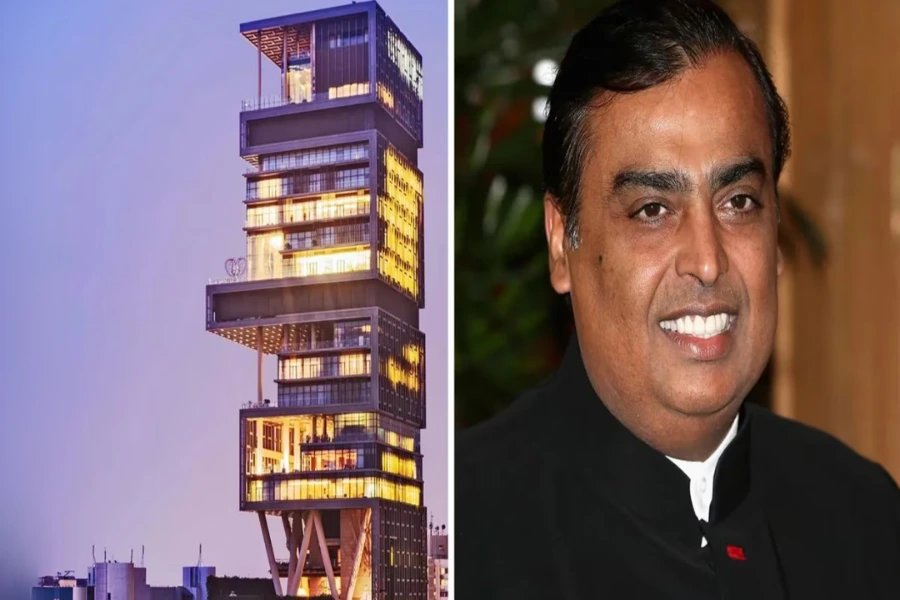
The Unusual History of Antilia: A Development for Charitable Purpose Became the Most Expensive Property in India. The impressive Mukesh Ambani house called Antilia stands tall as a symbol of wealth and luxury on Altamount Road in Mumbai. Priced at around 4.6 billion dollars, this 27-story private home. It is one of the priciest homes across the globe. However, beneath all the grandeur lies a lesser known story related to the land it sits on. It is a story of giving, contention, and ownership battles in court. Let’s explore the background of this needed real estate, which has recently found its way into news reports across the country.
From Orphanage Land to One Billionaire’s Estate
Before Antilia became the home, it was land owned by Currimbhoy Ebrahim Khoja Yateemkhana. It was an orphanage established in 1895 by Kareem Bhai Ibrahim, a wealthy ship owner. The land was meant to be used for a very reasonable outcome. It was for providing housing and education for underprivileged Khoja Muslim children.
In 1986, the land was transferred to a charitable trust under the auspice of the Waqf Board. Reports indicate that the deed of gift provided that this land was to be utilized for religious education and to provide residence for orphans. Many years later, this humanitarian and charitable vision became something else.
Sale of Waqf Property and Legal Issues
In 2002, the management of the orphanage sought permission from the charity Commissioner to sell the property. Three months later, the sale was approved, at which point the land was sold for $2.5 million (about ₹20 crore at that time). It was sold to Antilia Commercial Private Limited, a company owned by Mukesh Ambani.
The sale was controversial as the land’s fair market value was allegedly in excess of $18 million (around ₹150 crore). It raised serious issues regarding the fairness surrounding the sale. Recently, AIMIM chief Asaduddin Owaisi reignited this debate by claiming that the land was intended for charitable purposes. He also claimed that the transfer of the land was a violation of an element of paramouncy of public trust. Owaisi argued that developing land intended for orphans to construct a private residence was contrary to the intentions of the donor.
Potential Breach of the Waqf Act
Critics have pointed out that the sale of the land may have violated Section 51 of the Waqf Act. It requires obtaining prior permission from the Maharashtra State Board of Waqfs before selling any Waqf property. The charity commissioner may have approved the sale. Also, because it did not receive prior approval from the Waqf Board, it may be stalled legally.
The Maharashtra Government and the then Waqf minister, Nawab Malik, challenged the sales. The transfer was temporarily frozen and the Waqf Board escalated the matter to the Supreme Court. However, the Supreme Court eventually dismissed the application, lifted the stay, and the Board withdrew its resistance.
The End Result
Although the sale was controversial and faced public scrutiny, the sale went through. The Ambani home was constructed without any further legal obstacles. It is the residence of India’s richest family and is now one of the most talked about subjects in discussions about urban wealth, luxury, and inequality.
Mukesh Ambani house, the Antilia is equipped with helipads, parking for an extensive fleet of cars, the personal home theater, a “snow room”, several swimming pools and a wellness spa. It is more than just a “home” — it’s a palatial home and an implication of the family’s wealth.
Public Response and Ongoing Discourse
The initial stated land use continues to trigger public sentiment. Particularly online where news about Antilia’s past has successfully sparked new discussions around ethics, governance, and wealth inequality.
While some argue that the sale was legal and followed appropriate processes, others question the morality of turning land that belongs to orphans into a private estate. The sale at less than market value also casts even greater concern about the management and sale of public property.
The story of Antilia is not just about exceptional architecture or the Ambani family, but rather a story of how a legacy can come into conflict with contemporary plans. While the legal issues may be resolved, the ethics behind this Wellington segment will likely continue to be debated — to ensure this will remain one of most talked about recent news updates in India.






Can you be more specific about the content of your article? After reading it, I still have some doubts. Hope you can help me. https://accounts.binance.info/en-NG/register-person?ref=YY80CKRN